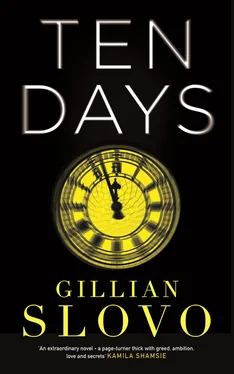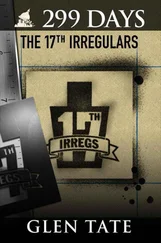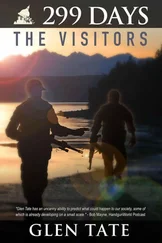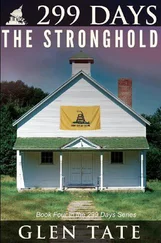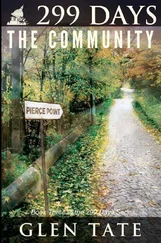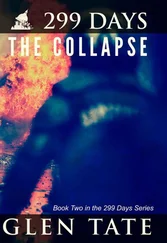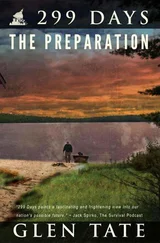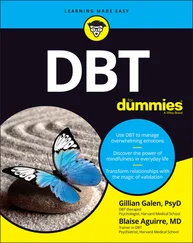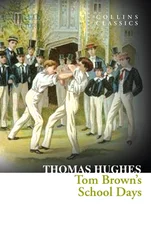Freeze frame: the man in full stride, his arm stretched back behind him.
The cabbage arcs up on a high trajectory towards the car.
The cabbage hits the front windscreen, which cracks.
Those two sides — the group of youths and the police — face each other.
Freeze frame.
And then double time.
The box of cabbages became a focal point, a stopping place for grabbing arms that reached in, withdrew and threw, until the air was thick with flying cabbages. They hit the car and dented it as, attracted by the noise, more members of the crowd started running towards the commotion.
The police did not react.
The first of the group were already advancing on the dented car. Someone tried to pull open a front door. When that didn’t work, someone else placed his elbow against the cracked glass on the driver’s side and jerked it back. The glass caved in. He inserted his hand through the gap, pulled up the lock and opened the door. Someone pushed him aside and dived into the car, soon to re-emerge, triumphantly, with a trophy. A CS canister. The sight produced a long drawn-out cheer.
And still the police did not move.
We should go, Cathy thought, but somehow couldn’t tear herself away.
More of the youths were in the car, ripping it to pieces. One of their number must have released the handbrake. A shout went up: ‘Roll it.’ The men in the car scrambled out as a handful of other youths got behind it and, at the shout of ‘One, two, three, push’, pushed. The car edged forward.
‘One, two, three push.’
This time, before the ‘push’, Cathy was certain that she saw the young men stop and look at the police line, as if, she was later to decide, daring the police to react.
The police did not react.
‘One, two, three…’ There must have been a slope in the road because this time on the third ‘push’ the car rolled forward and did not stop until it hit the kerb. It mounted the kerb before slipping back. It was now directly in front of the vegetable shop.
A man, the owner, came out of his shop, his hands up as if to wave the car away. He shouted ‘Help!’ at the watching lines of police. ‘Come help me.’
No reaction.
As the youths lined themselves up behind the car, readying themselves for a last push, the shopkeeper and his sons, who had also dashed out, planted themselves at the car’s front end. They laid their hands on the battered bonnet and pushed. The car seesawed backwards and forwards for a moment in a contest that the shopkeeper was bound to lose save that several of the youths pushing at its rear voluntarily gave up, while a couple of the others were physically wrenched away by Banji.
‘One, two, three push.’ The people at the car’s front end were now in the majority, and the car rolled backwards, coming to a halt in the middle of the road.
Such an odd sight. A battered patrol car, isolated as a row of police just looked on. It was a trophy that the crowd began to circle. Round and round they went, banging hands against open mouths and whooping.
A voice yelling in Cathy’s ear: ‘They’re going to torch it.’ Lyndall’s voice. ‘Hurry up, Mum. We have to leave.’
Hand in hand they began to run, pushing against a tide of excited incomers. A ‘whoosh’. They stopped and turned. Just in time to see a thin jet of fire flare from the open petrol cap of the police car. And then, as the people around it stepped away, the car exploded.
A collective howl, exultation and rage mixed, rose up into the night and although some of the crowd now retreated from the burning car they were soon replaced by others who, drawn to the blaze, joined the whooping dance around the flames, while a small subgroup split off from this crowd to run over to the bus and around it until they had disappeared from sight.
The bus began to rock, imperceptibly at first, so that Cathy thought she might be imagining the movement, but then she realised that they were pushing it from the side, forwards and back, slowly at first but then gathering speed, a huge red pendulum whose main arc was forwards and towards the street, until, one more heave, and the bus tipped over. Spotlit by the burning car, it arced down, gathering speed as it neared the ground, and then it was down, splinters of broken glass flying out, to the sound of cheers and breaking metal, the bulk of the crowd racing for it.
‘Come on. Quick. Let’s get out of here before they set the bus on fire.’
8.25 p.m.
The untidiness of the hedge was history. Or at least it would be once Billy had bagged up the last of the cuttings.
It had taken longer than he’d expected. Hours in fact, although he had had a break to watch the match and the post-match commentary, which he’d bookended with an extended snooze.
A rare treat to spend a Saturday without demands and he’d milked it — not that he didn’t miss the girls but they’d be back, at which point Angie would be over the moon about his good work.
Just one more bag to fill and then, he thought, a pizza and a low-alcohol beer. Perhaps two. He’d earned them. As he began to sweep along the pavement, he felt his phone buzz. He pulled it out and clicked it on: ‘Yup?’
‘Billy? It’s Mike.’
Mike was not part of that weekend’s command complex, so this must be a social call. Billy felt himself relax. ‘What’s up?’
‘A bus on fire in Rockham.’
‘Oh yeah? Course there is. Pull the other one.’
‘This isn’t a wind-up,’ Mike said. ‘I’m on the ground. The station’s under siege and there’s hardly any Level 2 here. They’re going through the call list — you’ll be hearing from them soon — but I thought I’d give you a heads-up so you can organise your kit.’
Without thinking about it, Billy had straightened up, and when he asked, ‘How bad?’ he sounded extremely calm.
‘Really bad. And it’s only going to get worse.’
9.15 p.m.
Jayden had dreamt this same dream, and on more than one occasion. He and Lyndall walking down an unfamiliar street. Him reaching out for her, like she (he was never in any doubt about this in the dream) wanted him to do. But as their fingers touched, a hot wind, no, not a wind, a tornado ripped them from each other, and he was sucked up into the twisting centre, powerless as she seemed to shrink, or else he was being blown further and further away from her — he couldn’t tell which it was. He only knew that he could no longer make her face out in a gathered crowd.
And now he found himself living this dream even though the street they were on was Rockham’s main thoroughfare and they had been torn asunder not by a wind but by the force of the rampaging crowd. Her hand reached out for his, but he was jammed so tight that he had been lifted off the ground, with the thrust of the group carrying him away from her.
He saw her mouth open. He knew she must be calling to him, but he couldn’t hear what she was saying, and soon he couldn’t see her either. He struggled to free himself and eventually managed to tunnel his way out of this cyclone of people, many more of whom were heading in the opposite direction. He lowered his head and barrelled against this oncoming tide, back to the place where they’d been parted. But she was long gone.
He thought he heard her name, not once but many times. He scanned the crowd as that implausible cry ‘Lyn-dall, Lyn-dall’, which his imagination must have summoned up, mocked him. He tried to jump up, the better to see where she might have gone, but that set the people around him jumping, the action spreading through the crowd so that all he could now see was a myriad of bobbing heads. He felt a terrible sense of failure: he had not kept her safe.
A bang, and the tide turned, and he with it, all of them running at the noise that was the bursting into flames of a squad car. Then he saw Lyndall, lit up by the flash of the explosion. She was safe. With her mother at her side.
Читать дальше
